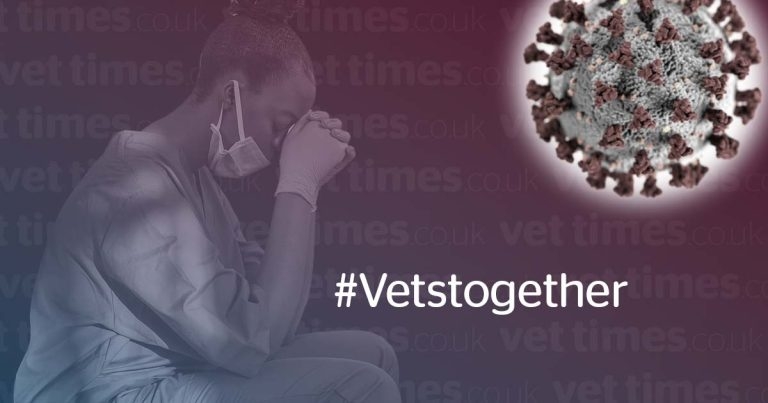29 Oct 2020
Three-quarters of veterinarians rank well-being concerns top in a new survey out today from the BVA.

Three-quarters of vets are concerned about the profession’s levels of stress and burnout as a direct result of COVID-19, according to a new BVA survey out today (29 October).
Concerns about practical vet student training, and student and new veterinary graduate confidence, also feature high up on the list of pandemic-sparked worries.
Specifically on the impact of health and welfare in the medium term, vets had most concern for zoo animals and wildlife.
Six months after the national lockdown, the association polled its members of its Voice of the Veterinary Profession panel for a snapshot survey to gauge the profession’s feelings about veterinary life and how the pandemic may have affected it.
A total of 565 respondents ranked their levels of concern across areas that included health and well-being, finance and employment, students and new graduates, and animal health and welfare.
As the UK faces a second wave of the pandemic, 74% – the highest proportion – were very or quite concerned about stress and burnout in the profession, closely followed by 72% who were worried about extramural studies and practical training for students, and 67% concerned about student and new graduate confidence.
Two-thirds (67%) also ranked stress and burnout among colleagues highly, 62% feared the impact of a recession on the sector, and 62% feared for the health and welfare in the medium term of wildlife and zoo animals.
Although veterinary workplaces have adapted to working safely, 42% of the profession is very or quite concerned about contracting COVID-19 at work, rising to 55% among anyone working in mixed practice and 50% in small animal/exotic practice.
In other parts of the survey, respondents showed they were more concerned about stress and burnout in their colleagues (67%) than how the pandemic was impacting on themselves (45%), but the proportion was higher at 58% among small animal/exotic vets.
Managers and employees ranked stress and burnout higher than business owners and self-employed members of the profession.
Some optimism was noted in the findings, with a fifth (23%) not at all concerned about job security in the sector, 43% a little concerned and 31% very or quite concerned.
However, 95% had some level of concern (a little, quite or very) about the potential impact of a recession on the veterinary sector, with concern heightened among Government, equine and charity vets.
The BVA said it would use the survey to inform its support of the profession as the pandemic continues.
BVA president James Russell said: “Although this is just a snapshot survey, it tells us a lot about how our colleagues are feeling six months on from the national lockdown. It paints a worrying, but not surprising, picture about the health and well-being of a profession that has worked incredibly hard and in very difficult circumstances this year.
“I’m incredibly proud of the way the profession has adapted to working safely during COVID-19, but we know it has taken its toll – for example, with consults taking longer, needing to cover staff shortages and dealing with anxious clients.”
BVA members can email the association for advice or email Vetlife.
The full survey is available online.